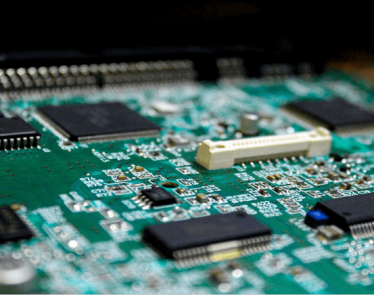
Chip stocks have surged by roughly 28% since January 2019 according to Vectors Semiconductor ETF. This upside is mainly due to positive expectations from the China-US trade agreement.
The China-US trade deal fueled impressive gains for stock chips because it provides a strong bridge for these stocks to access the Chinese market with less friction. Investor expectations of a market recovery after last year’s poor performance also contributed to the rally. However, US-based chipmakers are still not in the clear because they might end up suffering a major pullback if the trade deal goes south or falls short of expectations.
Chip Stocks have Huge Market in China
The chip stocks that are most likely to be affected include Texas Instruments Incorporated (NASDAQ:TXN), Broadcom Inc (NASDAQ:AVGO), Qorvo Inc (NASDAQ:QRVO), Micron Technology, Inc. (NASDAQ:MU), and QUALCOMM, Inc. (NASDAQ:QCOM). These companies have a lot of exposure to the Chinese market, and roughly 40% to 60% of their revenue comes from the Chinese market. If the trade deal were to fall through, then, these chip stocks would be greatly affected.
Credit Suisse recently described the semiconductor market as unattractive despite the bullish performance since the start of 2019. Andrew Garthwaite recently lowered his rating for the semiconductor industry, citing an overextended smartphone cycle and elevated valuations. The Credit Suisse analyst stated that there is a 75% chance that the industry underperforms when chip stocks have a valuation against the overall stock market performance.
>> PLUG Stock Reaps the Benefits of Strong Earnings Performance
Chip Stocks Target 5G Growth
Meanwhile, chip stocks are betting big on the 5G era, which will lead to a surge in demand for 5G chipsets. Boris Schlossberg of BK Asset Management claims that one of the key factors to consider when it comes to 5G is the Internet of Things (IoT) sector. The latter will usher in a new age of devices that need chipsets to power their connectivity and this translates to more demand, and subsequently more revenue for chip stocks.
Featured image: DepositPhotos © vladem









